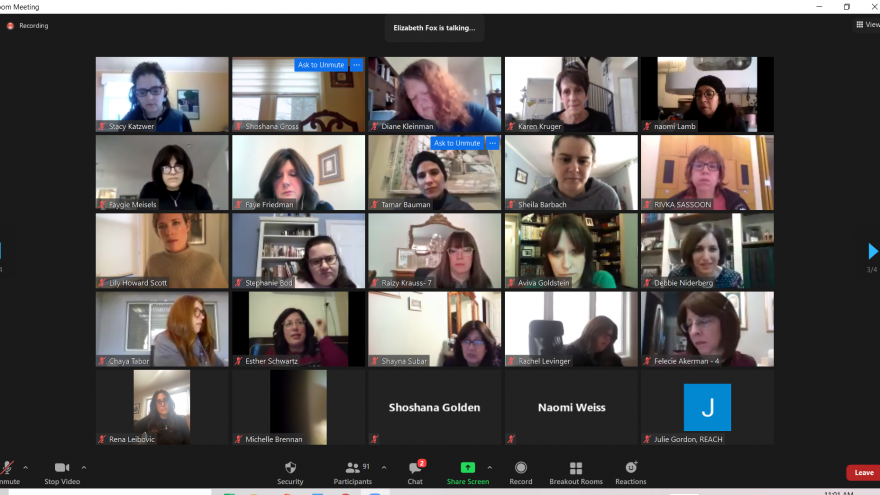The COVID-19 pandemic has taken a negative toll on so many aspects of everyday life, including the ongoing anxiety of students and teachers in the classrooms. Hidden Sparks, a nonprofit focusing on training teachers and providing them with the tools to support struggling students in mainstream Jewish day schools, recently convened a virtual conference to address this challenge. Nearly 100 Jewish educators from nine states came together to collaborate on developing their skills and toolboxes for creating positive and stable experiences for their students.
Participating educators were able to choose from 11 lecture options that gave them tools in a variety of areas like topics like art therapy exercises in the classroom to teacher’s self-care and personal growth. Topics included Recognizing Anxiety in Myself and Others, Guided Relaxation Exercises, Building a Positive Psychological Toolbox and Personal Growth in Difficult Times, among others.
The participating educators hailed from 45 Jewish day schools in New York, New Jersey, Maryland, Arizona, Florida, Illinois, Missiouri, Texas and Rhode Island. They span the religious affiliation gamut from those identified as serving a non-denominational community to those serving Hassidic students.
They heard from leading education experts including Rona Novick, Ph.D, dean of the Azrieli Graduate School of Jewish Education and Administration at Yeshiva University and co-educational director for Hidden Sparks; Lily Howard Scott, MS, Hidden Sparks’ Social Emotional Learning Coach; Hidden Sparks coaches from across the country, school and clinical psychologists, and an art therapist.
“Fortunately, many of yeshivas and day schools have managed, through careful planning, to stay open for most of the year but this whole period has been especially challenging for our teachers,” said Hidden Sparks Executive Director Debbie Niderberg. “It was very clear to us that the focus for our retreat this year had to begin with strategies for teachers self care, and then expand to how do I bring these strategies into my classroom. There has been such a focus on academic learning loss this year but in reality there have been so many other kinds of loss that we have experienced through this time, and we recognize how important self care strategies and mental health sensitivity are for teachers and students.”


























